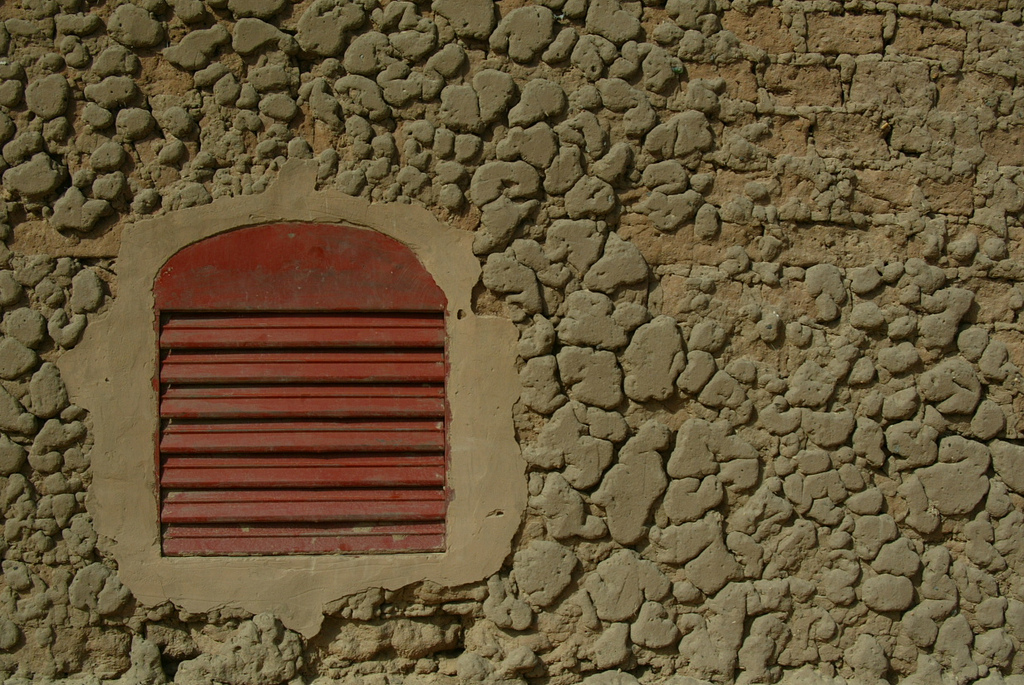Today’s post is focused on the Ekklesiyar Yan’uwa a Nigeria (the Church of the Brethren in Nigeria) and their experiences amidst the violence that currently wracks northern Nigeria. The Church of the Brethren (US) has identified next week (August 17-24) as a week of prayer and fasting for the EYN and for the violence in Nigeria more generally. Please see their website for resources, more information, or to sign up:
http://www.brethren.org/partners/nigeria/week-of-prayer-and-fasting.html.
_________________________________

In recent months, the story of the nearly 200 Nigerian schoolgirls who were kidnapped from their boarding school in Chibok has garnered widespread international attention. Within Anabaptist-connected circles, this story has had an even greater impact, since the majority of the girls kidnapped are from families that belong to the Church of the Brethren in Nigeria (EYN—Ekklesiyar Yan’uwa a Nigeria).
The girls were kidnapped by an Islamic extremist group known as Boko Haram, who has been leading a deadly insurgency in northern Nigeria for the past five years, with the hopes of establishing an Islamic state. Although religion has been pushed to the forefront of this conflict, it has deep political and economic roots as well.
Trauma and Loss for the EYN
The kidnappings and other atrocities committed by Boko Haram (6,000 dead since 2009) are horrifying, and the EYN, a denomination with over 550,000 members and Sunday morning attendance of 5 million, has borne the brunt of much of the violence in their region.
In July the EYN sent a letter to the United Nations describing their situation, along with a document titled “A Report on the Genocide of Christians in North Eastern Nigeria: The Time to Act is Now.”
In the letter EYN president Samuel Dali reported,
1,941 houses and properties that belong to our members…have been burnt…2,679 members of our community including women and children have been displaced from their ancestral native lands. These people have now lost their houses and properties. They are living homeless, with their women and children, without food and clean water. They camp under trees to find shelter and live as refuges either in Cameroon or in other states within the country. These displaced people who are mostly farmers cannot go and work on their farm this year. Those who have attempted to go back to their farm are either killed or chased away.
In addition to the crisis of displacement, hundreds of EYN members have also been killed or kidnapped.
Church of the Brethren (US) general secretary Stan Noffsinger and Global Mission and Service executive Jay Wittmeyer visited EYN in April of this year. Reflecting on their visit in an interview with Newsline, Noffsinger recalled a report that EYN president Samuel Dali read at the denomination’s annual meeting.
“As Samuel Dali was going over that report, the pain of all of the loss and unknown was evident in the faces and the eyes of the people. Within that report is a district by district accounting of who isn’t alive, the churches burned, and houses destroyed,” said Noffsinger.
According to Noffsinger and Wittmeyer, the church has been forced to “pull in” their resources and “focus on the core,” in order to deal with the trauma they’ve experienced.
Ministry in the Midst of Suffering
The EYN fully recognizes that their religious identity increases their vulnerability in the region, and they have intentionally described their situation before the UN as “genocide. Yet even in their suffering, the EYN has refused to frame the conflict as an Islamic-Christian one, although they certainly call specific Islamic leaders to account for supporting Boko Haram.
Instead, in an increasingly polarized context, they have taken the radical step of openly ministering to Islamic and Christian neighbors alike.
In the city of Jos, which suffered two massive bombings in May that killed over 118 people, EYN member Markus Gamache works with Lifeline, an interfaith community development group that has worked to build wells in Nigeria’s Muslim communities. Gamache’s wife has at times feared for his safety in this work due to the risks involved in traveling to particular regions, but his commitment has given him as a Christian unusual access and connection to Muslim communities.
A second project supported by the EYN is the Center for Caring, Empowerment, and Peace Initiatives (CCEPI), run by Rebecca S. Dali. Dali’s academic research has focused on the effects of Nigeria’s violence on Christian and Muslim women, concluding that women bear the brunt of societal trauma and that Muslim women are just as affected by the crises as Christian women.
(It’s important to note that Dali’s work is focused on the period between 1980 and 2008 and does not take the recent years under Boko Haram into account.)
Dali’s awareness of the particular needs of women in Nigeria’s conflict have led her to do some innovative—and very challenging—work through CCEPI. The center documents incidents of violence in both Christian and Muslim communities, with a particular focus on women and children.
“She’s been to Cameroon, across the border, across the territory of Boko Haram, and in the refugee camps,” said Noffsinger in the interview with Newsline. According to Noffsinger, CCEPI’s documentation has resulted in “an incredible database of narrative acts of violence,” a testimony to the loss and suffering the conflict has produced.
Jay Wittmeyer added,
She’s developing a reputation within the Muslim community as someone that can be trusted to come in and do legitimate relief work. Rebecca is in the midst of people. She often says numbers [of those affected by violence] are underreported. She can list out name by name, person by person, why the numbers are wrong.
EYN members, along with many other Nigerians, face incredible uncertainty and grieve for all that they have lost and continue to lose. The layers of trauma will take years to heal. Yet their faith in the risen Christ has led them to simultaneously minister to others who share their suffering, even when such ministry requires crossing religious, regional, and political boundaries.